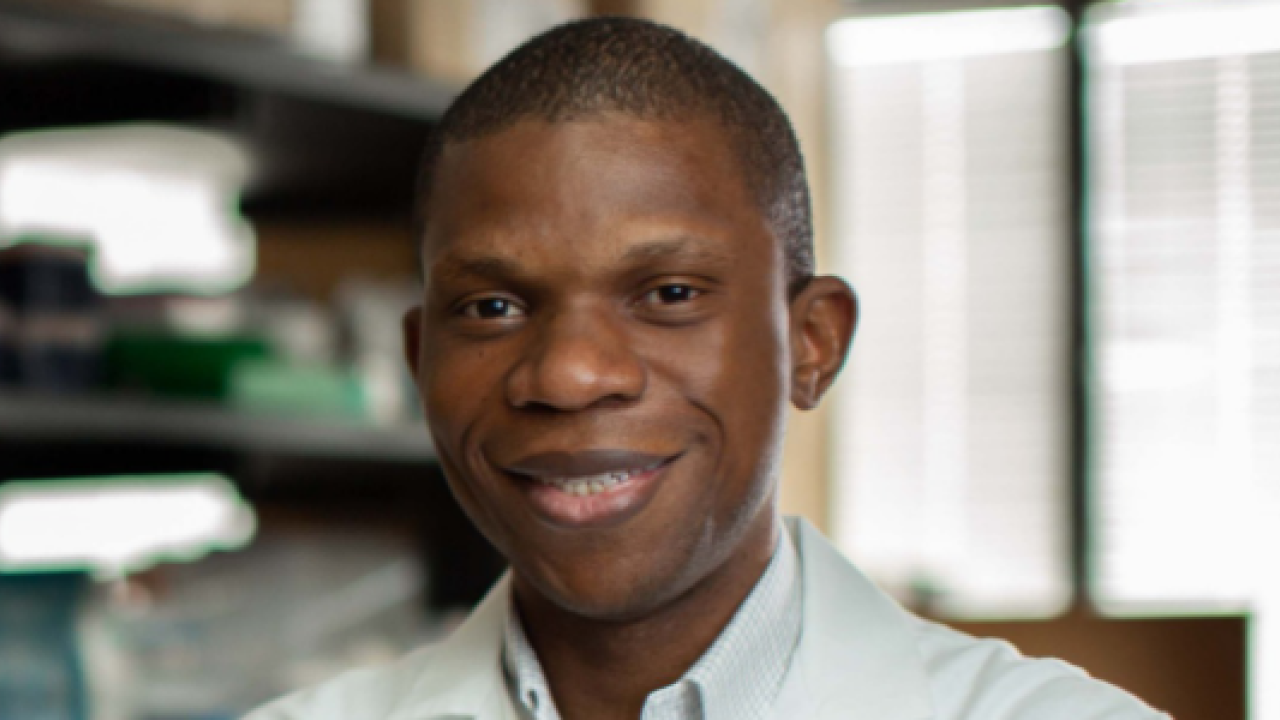OWSD NIgeria National Chapter presents Expanding women's participation in cancer research in Nigeria
OWSD Nigeria National Chapter University of PortHarcourt Branch Series of Scientific Comm.:Zeribe Nwosu on Expanding women's participation in cancer research in Nigeria

Expanding women's participation in cancer research in Nigeria
By
Dr. Zeribe Nwosu
In our December 2023 seminar series, the Organization for Women in Science for the Developing World (OWSD) hosted a guest speaker, Dr. Zeribe Nwosu, who is currently an Assistant Professor at Cornell University, USA. The topic of the seminar was “Expanding women's participation in cancer research in Nigeria”. Dr. Nwosu spoke on the need for female Nigerian scientists to get more involved in cancer research, the steps to accomplish that objective, and the sort of resources that could be leveraged.
According to the data from the Global Cancer Observatory of the International Agency for Research on Cancer, female cancers such as breast, cervical, ovarian, and endometrial cancers are among the most prevalent and deadly worldwide, including Nigeria. However, cancer awareness and enlightenment remain limited in the developing world, especially in rural communities. The willingness of cancer patients to seek medical intervention is also limited by the associated exorbitant medical costs, paucity of quality healthcare, limited access to healthcare facilities, and often unorthodox beliefs that diseases like cancer have superstitious origins. These challenges contribute to delayed or late cancer diagnosis, and cancer disparity, and frustrate cancer research efforts. The participation of women scientists in every spectrum of cancer research will help raise awareness and improve the attitude of female cancer patients towards accessing healthcare for treatment, diagnostic, and prognostic purposes. This will likely boost the number of female patients consenting to the use of their samples for research and thus contribute to a better understanding of the unique characteristics of and treatment options for cancer in Nigeria.
Dr. Nwosu highlighted almost inexhaustive practical steps that Nigerian women could take to expand participation in cancer research and build the needed expertise for tackling cancer. These steps include the pursuit of education, advancement of experience in cutting-edge research techniques, pursuit of faculty positions, top industry career ladder, participation in biomedical innovations, getting involved in clinical practice, collaboration with peers and experts, and research exchange visits within and outside Nigeria. Other areas include engagement in politics or government appointments to use such high offices to promote quality healthcare access for cancer patients. Further, working with non-governmental organizations (NGOs), advancing advocacy initiatives, and integrating of data science and artificial intelligence (AI) are also critical and innovative directions that collectively expand the opportunity for women scientists to get involved in cancer research. Interestingly, Dr. Nwosu noted that these proposed steps cut across disciplines, do not all require expert knowledge of the molecular biology of cancer, and thus can be pursued collaboratively. This implies that irrespective of the field of study, there is an opportunity for any Nigerian female scientist who wishes to build a career in cancer research.
Getting more women involved in cancer research in Nigeria will require intentional and interventional efforts aimed at equipping interested persons with the needed resources and training. To lower the barrier of entry, cancer research should be encouraged and incentivized, and female researchers should be provided equal access to resources. Government and NGOs should provide dedicated scholarships that support the training of women in cancer research. Funding agencies, professional associations, and universities should also be intentional about the recruitment and retention of female scientists and encourage women who wish to venture into cancer research through innovative dry-lab routes such as AI, data science, epidemiological, and field studies. Dr. Nwosu further emphasized that aspiring female cancer researchers should actively seek to network and collaborate with other scientists at home and abroad, leveraging on research exchange opportunities. One such opportunity is the University of Michigan African Presidential Scholars (UMAPS) program, which offers an all-expense paid trip to the University of Michigan for research training. In addition, cancer research postdoctoral opportunities at Cornell University and several other institutions across the globe often do not have nationality restrictions and so could help to equip female scientists from Nigeria and the developing world. Further, professional organizations such as the American Association for Cancer Research, the European Association for Cancer Research, and the African Organisation for Research and Training in Cancer – or even the National Cancer Institute of the National Institutes of Health, USA – offer various opportunities to support research projects, exchange visits, conference participation, networking with cancer experts or collaborative research. Female Nigerian researchers could also apply to fully-funded graduate programs or proactively contact well-funded cancer research laboratories abroad for research training opportunities. These potential resources could help to empower Nigerian women scientists to independently lead top-level cancer research programs at home and abroad.
In conclusion, this was an insightful seminar that touched on several action points for achieving more participation of women in cancer research in Nigeria. We thank Dr. Zeribe Nwosu for his steadfast commitment to education and service and wish him success in his cancer research program. For more about Dr. Nwosu’s research, please visit his lab website at www.nwosulab.com. He is also active on social media, notably on LinkedIn and X.
